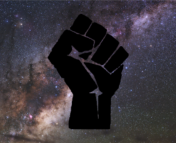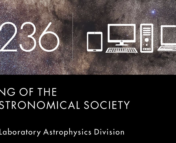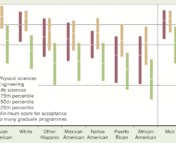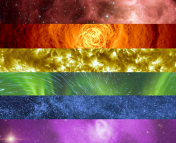This astrobite focuses on a white paper prepared by our collaboration for submission to the Astro2020 process. Over 20 astrobites.org and astrobitos.org authors have been involved in its drafting.
- Title: Astrobites as a Community-led Model for Education, Science Communication, and Accessibility in Astrophysics
- Authors: Gourav Khullar et al.
- First author’s institution: University of Chicago, USA.
- Status: Submitted to Astro2020.
The Astro2020 is a process of self-assessment of the international astrophysical community. It is coordinated by the national academies of the United States, NASA, the National Scientific Foundation and the Department of Energy to establish priorities in research and in the state of the profession (education, inclusion, diversity, etc.) for the next decade (2022 -2032). This process is carried out is through the establishment of panels that evaluate community proposals, submitted as “white manuscripts.” It is for the astrophysical community to propose priority themes or activities, justify them, and send them to the academies so that they can be analysed by the various committees. The committees then produce a final report that suggests priorities for developing our profession. The process is described in detail on this site, where you can also subscribe to the e-mail list. You can also find out what the priorities were in previous reports, such as the “New Worlds, New Horizons” that resulted from the Astro2010 ten years ago.
Our History and Mission
Since 2010, Astrobites has sought to bring current research topics to readers in university. As undergraduate students, facing the ever growing scientific literature is a monumental challenge. The manuscripts that we find every day in the arXiv are full of jargon, technical descriptions of new methods and ways of presenting the results that feel unrelated to our first year lab reports. Astrobites began with the sole mission of synthesising the content of these manuscripts (on a daily basis) in a manner accessible to an undergraduate student. We aim to complement what is taught in the classroom and make the transition to research easier for aspiring scientists.
Over the years, our activities and our reach have expanded. Through surveys carried out on our site, we realised that our reach has expanded from undergraduate students (14%) to doctoral students (33%), researchers (12%) and amateur astronomers (26%). Our audience was also growing to be more and more international. (We had half a million visitors from the US in the last five years, 62,000 from the UK and 27,000 from India, for example.)
Through a wide range of activities, Astrobites seeks to improve access to information, diversity and inclusion in our field:
- We disseminate content through our platform, so we can reach students who could not otherwise be informed about the latest scientific developments.
- We also seek to bring them information regarding scholarship opportunities and the possibility of publishing small excerpts from their own research.
- Through our accounts of conferences and interviews with speakers, we make the experience of attending an event like the annual meeting of the American Astronomical Society for the first time less intimidating. We have a physical presence there through our booth.
- We publish articles on diversity, equity and inclusion in astrophysics, seeking to improve awareness of these issues in the community and showing that astronomy is fundamentally a human endeavour that is also subject many societal issues.
- To facilitate the use of our material in the classroom, we conduct workshops for educators at different international conferences and make lesson plans available online. We monitor the results of these workshops to understand what improvements we can make in the future.
- We disseminate our content in other languages, such as in Spanish at astrobitos.org. As our group of writers grew, we went beyond translations to incorporate our own material. Many of our articles there now focus on issues of relevance to the Spanish-speaking public specifically.
Our impact has quickly increased. Today, there exist 17 sister sites in different fields, languages and with their own content. Our writers are developing new skills through their work in astrobites and connecting better with the scientific and educational community. Our network of astrobites alumni provides them with professional opportunities and support in many aspects.
Our Vision
We firmly believe in the use of online platforms such as Astrobites as an educational, inclusion and diversity tool and in their generalisation to other fields. Thus, our recommendations for the next decade include:
- To generalise the integration of tools such as astrobites.org in the classroom. The ability to read and digest a scientific article should be integrated into educational programmes at the university level. Financing tools to do so should be made available to the community.
- To support the dissemination of platforms like astrobites.org to minority groups, to improve diversity and inclusion in our field.
- To incorporate astrobites.org material in journal clubs, lowering the barrier for graduate students to participate in such discussions.
- To support research on the efficiency of platforms such as Astrobites and Astrobitos so we can learn from our successes and failures.
- To financially and structurally support Astrobites and Astrobitos so that our presence in conferences and press releases can be enhanced and all authors have equal opportunity to attend such events.
- To financially support graduate students looking to improve their communication skills. This would improve content while at the same time opening new professional opportunities for students to be better writers, communicators and ultimately, scientists.
It is only the beginning!




